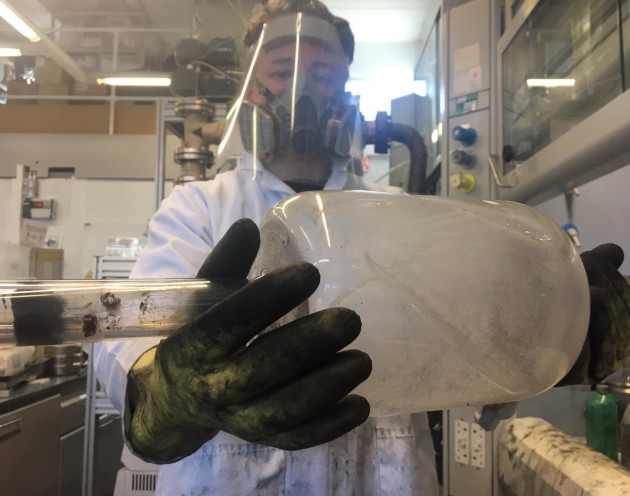2019 PhD Candidate - Alex Bowles
 Environmental and Water Resources Section
Environmental and Water Resources Section
Supervised by Dr Geoffrey D Fowler
Prior to starting his PhD, Alex worked as a research assistant, after completing his Environmental Engineering MSc within the department. He moved to Imperial College after graduating from the University of Bristol with a BSc in Environmental Geoscience.
Alex was awarded with an Engineering and Physical Sciences Research Council (EPSRC)-funded Scholarship to undertake his studies. He is also co-funded by his industrial sponsor, Pyrenergy Ltd.
Why did you decide to do a PhD in the Department of Civil and Environmental Engineering?
Primarily because the Departments research is very industrially relevant. It has many close partnerships with industrial partners which are very important for the necessary rapid deployment of new, improved technologies that address the whole range of environmental crises our world faces.
I was also very impressed with the quality of teaching during my MSc, and the supportiveness of the academic staff within the department.
Tell us about your PhD research
My PhD focuses on understanding how to optimise the production of waste-derived carbonaceous CO2 adsorbents. These adsorbents separate CO2 from nitrogen for application in upcoming carbon capture and storage technologies. The feedstock for this process is waste automotive tyres.
The project has two primary aims:
- Recycle a challenging waste material (waste tyres are currently not recycled) into a new product with environmentally beneficial applications via pyrolysis
- Address and mitigate climate change by providing understanding regarding the mechanism of carbon-capture using activated carbon adsorbents
What impact do you hope you research will have/what do you hope your research will lead on to?
Mitigation of CO2 emissions to help prevent global warming. Nearly all tyres in the UK are incinerated (releasing >1 million tonnes of CO2 per year). I hope that my work contributes to significant mitigations of these emissions through the development of an alternative process which produces recyclable materials from these tyres. Capturing CO2 from this material by carbon capture would be great also!
Does your research involve working with collaborators outside of the Department? If so who and why?
Yes. As my PhD utilises a by-product of tyre pyrolysis as its feedstock (pyrolysed tyre char), the viability of my project depends on pyrolysis of tyres developing successfully as an industrially deployed process. Thus, I provide technical and scientific expertise to my industrial sponsor, Pyrenergy Ltd, who provide my feedstock material. Pyrenergy are commissioning a large waste tyre recycling and energy-from-waste pyrolysis plant in the UK. We work together to optimise tyre pyrolysis, with the aim of producing recyclable material and energy from waste tyres at a competitive cost.
In addition, I am a committee member for the Society of Chemical Industry Energy Group. Our group contains experts from academia and industry in the UK. We discuss and are organising a conference series on the theme of energy storage, and how improved capacity for energy storage will help the UK reach its goal of Net-Zero by 2050.
I also have attended and presented at multiple conferences, where collaborating with academics from other departments and universities is a frequent occurrence.
What is a typical week like for you?
Both pyrolysis and carbon capture are very complex processes, and I spent most of the first year of my PhD reading academic literature around both. Now, I am deploying this newfound knowledge in my laboratory experiments. I am constructing and running two reactors to recover valuable materials from waste tyres. These materials are being used to produce CO2 adsorbents.
In between these experiments, I am writing a computational carbon-capture model which will simulate my carbon capture process based on data I gather in the lab. This model will be used to predict how my waste-derived carbon adsorbents will perform which can save time and money when planning and constructing the carbon-capture rig planned in 2022.
In between these, I have regular video calls with academic and industry experts within the field of rubber recycling and carbon capture. I have also regular and helpful meetings with my supervisor, Dr Fowler, who guides me through every aspect of the PhD.
How have your skills developed, both professional and personal?
Immensely.Much of the PhD is around presenting your work, both in terms of presentations and writing. As a result, you get much experience in both. In addition, you get excellent experience at learning how to properly design and carry out an experiment. Finally, you acquire much experience in how to analyse and interpret data, a much sought-after skill.
What do you enjoy most about being a PhD in the Department?
The PhD gives you the time and resources to immerse yourself in a subject that you are very interested in. You have to work hard, but it is a brilliant and rigorous learning experience.


